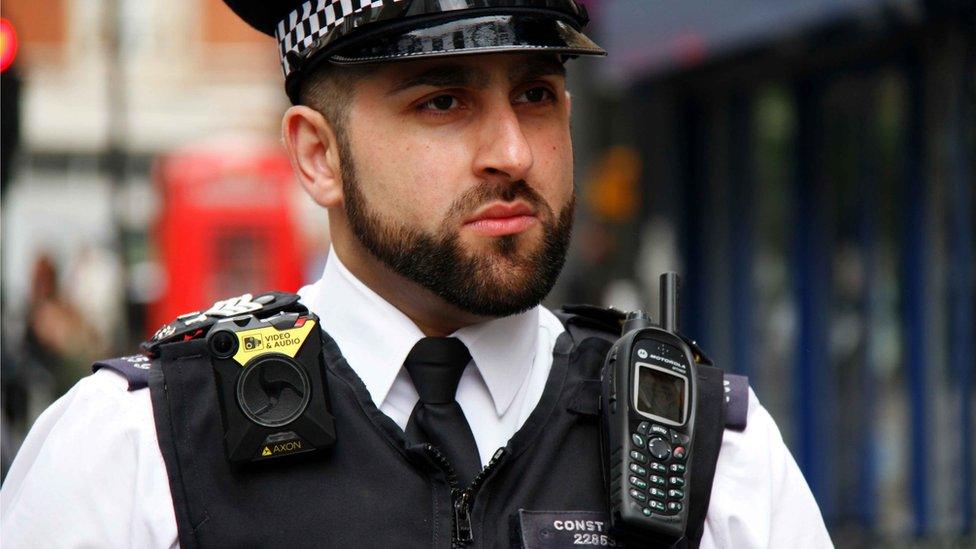Who will be London's next top police officer?
- Published
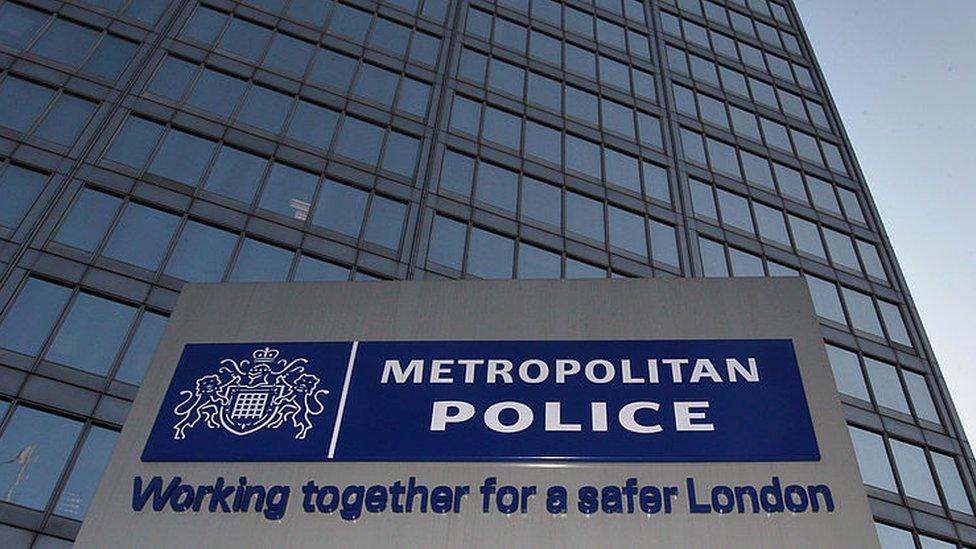
It hardly needed an advertisement did it? The job of Metropolitan Police commissioner is the most influential, high-profile and challenging role in policing in the UK - and, arguably, the most prestigious law enforcement post in the world.
The opportunity to shape the future of law and order at the top of Britain's biggest police force, with a budget of £3 billion and 43,000 staff, should in theory ensure a sizeable number of applicants of real quality. The salary, £270,648, is the largest in UK policing.
But the recruitment process, albeit only a few days old, has already been marked by the refusal of several possible contenders to put themselves forward.
Lynne Owens, the National Crime Agency (NCA) Director-General, and highly-regarded by Theresa May, was the first to rule herself out: she's on the selection panel for the job, alongside Alex Marshall, from the College of Policing, who's also declined to go for it.
Keith Bristow, who successfully launched the NCA, told me he wouldn't be applying either, a decision that will disappoint a number of officers within the Met. Chris Sims, former West Midlands chief constable, now assisting the National Police Chiefs' Council, and Peter Fahy, the ex-chief of Greater Manchester Police, also aren't standing.
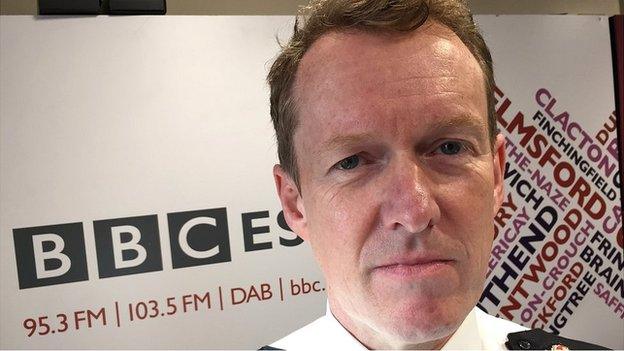
Stephen Kavanagh is currently chief constable of Essex Police
In fact, the timing of the vacancy is unfortunate. A group of experienced chief constables, like Bristow, Sims and Fahy, who might have been favourites, have left the police service and moved on, along with Jon Murphy from Merseyside, Andy Trotter from British Transport Police, and Adrian Leppard, who led City of London Police with verve and passion.
On the other hand, their replacements haven't had long enough to prove themselves - and show they're capable of running an organisation like the Met. Dave Thompson, the well-thought of West Midlands chief, might be a serious candidate in five years, but probably not now.
Metropolitan Police Commissioner job advert published
Met Police announce borough shake-up areas
So, who's left? Among those currently serving as chief constables, Simon Byrne, from the Cheshire Constabulary, is understood to be interested, though he joined the force only two years ago after a tricky spell in London. The better bet, perhaps, is the down-to-earth Stephen Kavanagh, who's headed Essex Police since May 2013.
Kavanagh's strongest claim to the job is his extensive experience at the Met. Over the past 60 years, every commissioner has worked in the force before. Kavanagh began as a beat officer in Leyton, east London, in 1985 before working as a detective, in senior and sensitive roles, on murder inquiries, counter-terrorism and anti-corruption.
On the downside is the criticism Essex Police has received, under his watch, from the Inspectorate of Constabulary. Although earlier this year the watchdog said the force was "well led", it was assessed as "inadequate" in protecting vulnerable people from harm and supporting victims, and "requiring improvement" in crime prevention and investigation.
From within the Met, two current assistant commissioners, Pat Gallen and Martin Hewitt, might be encouraged to throw their helmets into the ring, but they have never led a police force before - usually a requirement for the job.
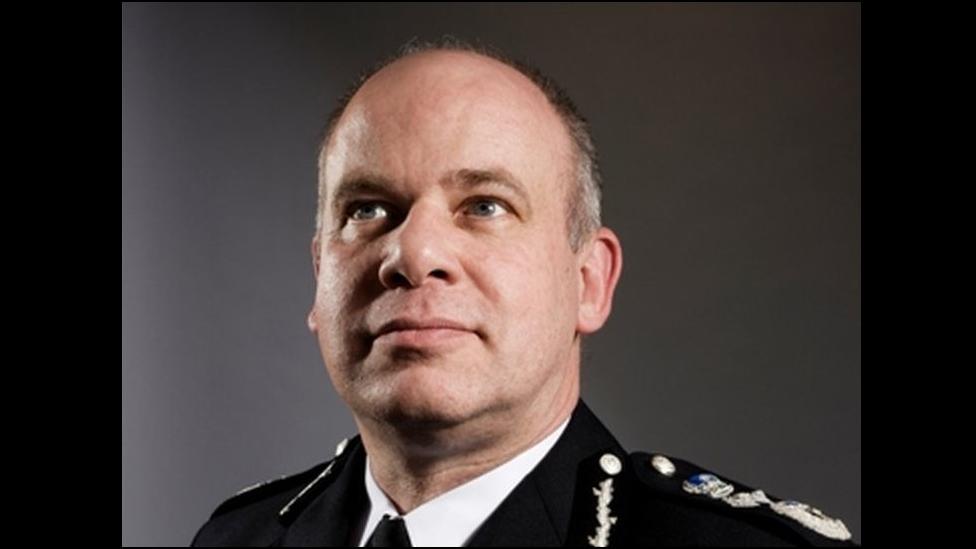
Craig Mackey is the Met's current deputy commissioner
There are, however, two other possible contenders. The current deputy commissioner, the avuncular but astute Craig Mackey, has been the perfect foil to the incumbent, Sir Bernard Hogan-Howe, and has his admirers.
But it's unclear whether Mackey, who was Cumbria's chief constable in 2010 when Derrick Bird went on a deadly shooting rampage, has the appetite for the top job. At the Met, the former Merchant Navy seaman is seen more as a highly capable Number Two, rather than a leader-in-waiting.
Mark Rowley, though, who's assistant commissioner in charge of counter-terrorism, is almost certain to go for it. Rowley is an intelligent and thoughtful man, with a deep understanding of the challenges facing modern policing, including key issues around national security, radicalisation and hate crime.
He's one of the few senior officers who's been willing to engage in mature debate with the media in the years since the Leveson Inquiry, but his sometimes outspoken and direct style is not to everyone's taste - making a public statement on the steps of the Royal Courts of Justice shortly after the Mark Duggan inquest certainly divided opinion.
Rowley's 11 years at Surrey Police, including three as chief, are likely to come under intense scrutiny. Although he's credited with a modernisation programme, the force wasted £15 million on a computer project that it later abandoned, and had to apologise to the family of the murdered schoolgirl, Milly Dowler, for failing to investigate allegations her phone was hacked.
In its 187-year history, the Met has never had a woman as commissioner, but this time there are two potential female candidates. Sara (who pronounces her name "Sarah") Thornton, head of the National Police Chiefs' Council, is considering applying, having steered the organisation through a difficult transition from its previous incarnation as Acpo, the Association of Chief Police Officers.
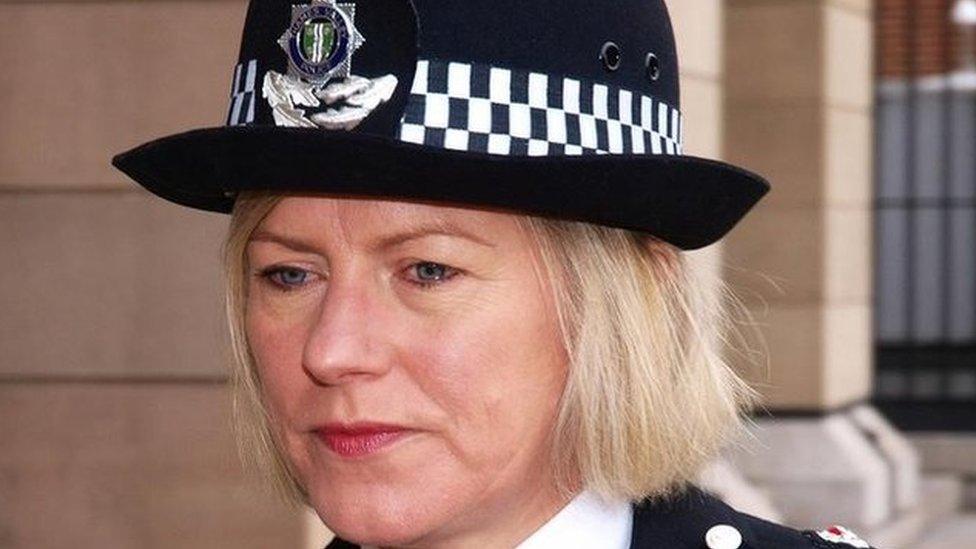
Sara Thornton, head of the National Police Chiefs' Council
Thornton's strength lies in strategy: she builds relationships, understands the world of politics, and has a vision for policing. Last year, she was heavily criticised for suggesting police no longer have the resources to visit every burglary victim and carry out random foot patrols, but the comments reflected the reality of an overstretched service.
Thornton began her career in the Met 30 years ago, becoming Thames Valley chief constable in 2007, though her final months were clouded by the Oxford grooming scandal. A serious case review found that her force had made "many errors" and failed to see that children were being exploited by groups of men. Thornton said she and her officers were "ashamed" of the shortcomings.
The other female competitor for the job could be Cressida Dick, arguably the most talented woman police officer of her generation. She held a variety of key roles at Scotland Yard, including acting for a short time as deputy commissioner.
Loyal, discreet and efficient, Dick was moved from her post overseeing counter-terrorism, failed to get the top policing job in Northern Ireland and left the service two years ago to pursue a senior intelligence role at the Foreign Office. Although she's never been a chief constable, few doubt she has the ability to be commissioner. There are two questions, however.
First, does she want it? Dick is understood to be enjoying her present role, working in the shadows, and may not relish a return to the spotlight. The media and public focus on the Met job is intense and unlikely to sit easily with such a private person.
Secondly, would Dick's role in the fatal shooting of Jean Charles de Menezes in 2005 at Stockwell train station count against her, should she apply? Dick was the Gold commander for the police operation, when officers tragically mistook the innocent Brazilian for a suicide bomber.
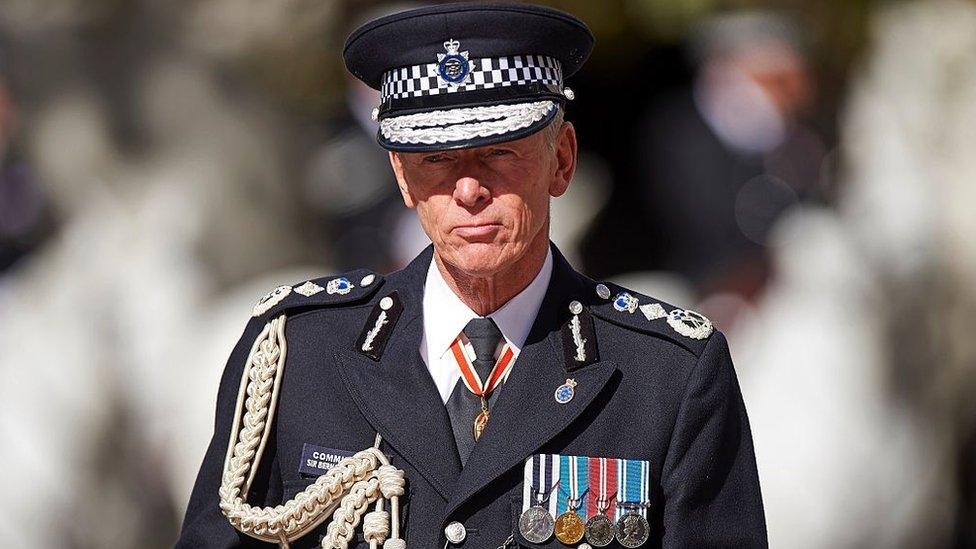
Sir Bernard Hogan-Howe is set to retire after five years leading the Metropolitan Police
A jury found the Met guilty of breaching health and safety laws over a string of failings in the lead-up to the shooting, but it attached "no personal culpability" to Dick herself for what had happened.
Nevertheless, the events that day are likely, at the very least, to be part of the discussion among the politicians - Amber Rudd, the Home Secretary, and Sadiq Khan, London's Mayor - when they consider who to appoint.
There is the possibility, of course, that Rudd and Khan will look outside the UK - senior police officers from the USA, Canada, Australia and New Zealand are eligible to apply. But the the most recent experience of appointing someone from overseas to a senior public role in Britain does not augur well.
Dame Lowell Goddard was parachuted in, at great expense, to head the Independent Inquiry into Child Sexual Abuse but the Auckland-born judge resigned after 18 months in controversial circumstances that are still not fully understood.
Ultimately, the appointment of the new Met commissioner will hinge on what Khan, and Rudd (possibly with Theresa May's influence) want from the new person.
In 2011, when Sir Bernard Hogan-Howe was appointed, Scotland Yard was in desperate need of a chief with a clear, purposeful and no-nonsense approach, as the force's reputation floundered following claims of corruption, fragmented leadership and the initial mishandling of the London riots.
Now, though, it may be time for a leader with a slightly less confrontational style - someone to nurture talent, reassure staff and inspire officers as the Met continues a huge programme of structural change in financially straightened and uncertain times.
The candidate who can demonstrate those attributes, above all others, is likely to be the one who wins policing's top prize.
- Published17 October 2016
